Marius Trésor is considered one of the best defenders in the history of French football.
Marius Trésor with the French national team
Born on 15 January 1950 in Sainte-Anne, Guadeloupe, his career was noted for his impressive defensive solidity, leadership and ability to nullify the most talented attackers. Trésor began his professional career at AC Ajaccio in 1969, where he quickly established himself as one of the best young defenders in the French league. Interestingly, he started playing as a centre-forward but his coach saw his defensive qualities and positioned him as a central defender, a position where he would dazzle. In fact he was named player of the year by France Football in 1972.
That same year, he moved to Olympique de Marseille, one of France's top clubs, where he spent years of great success. With Marseille, Trésor won the French Cup in 1976, beating Lyon 2-0. Marius Trésor cemented his reputation as a complete defender, capable both in the air and in one-on-one duels. His natural leadership made him a key player for the team and he was named captain during his time at the club. During his time at Marseille he will share a dressing room with Brazilian greats such as Jairzinho and Paulo César Lima.
Marius Trésor with Jairzinho and Paulo César Lima at Olympique de Marseille.
In 1979, Bayern Munich tried to sign him, but due to disagreements with the Marseille management, it did not happen. Trésor joined Girondins Bordeaux in 1980, where he spent the rest of his career until his retirement in 1984. At Girondins, his influence in defence remained crucial, helping the club compete in Ligue 1 and fight for national titles. Although a back injury would prevent him from playing in long seasons, the team won the French Championship in 1984, his last year at the club. His ability to read the game, his calmness under pressure and his physical strength made him one of the most feared defenders of his time.
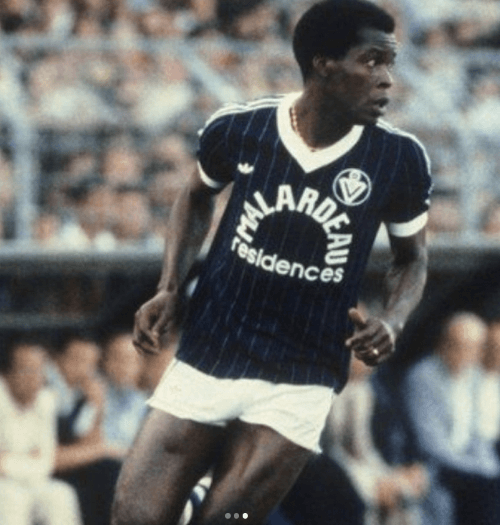
Marius Trésor with Girondins de Bordeaux
At international level, Trésor made his debut for France in 1971, and quickly became a mainstay of the defence. He formed a magical tandem with Jean-Pierre Adams.
He played a total of 65 international matches, being part of France's historic 1978 World Cup campaign in Argentina, where Les Bleus showed a great level despite not advancing to the final stages. Trésor, who served as captain, was known for his impeccable defensive performance at the tournament and for leading a generation of players who would pave the way for France's success in the years to come.
One of his most memorable performances for France came at the 1982 World Cup in Spain where France reached the semi-finals. He is remembered for his spectacular goal in the match against Germany in semi-finals despite the defeat on penalties in the match, Marius Trésor's goal will be remembered as one of the most exciting moments in the history of French football.
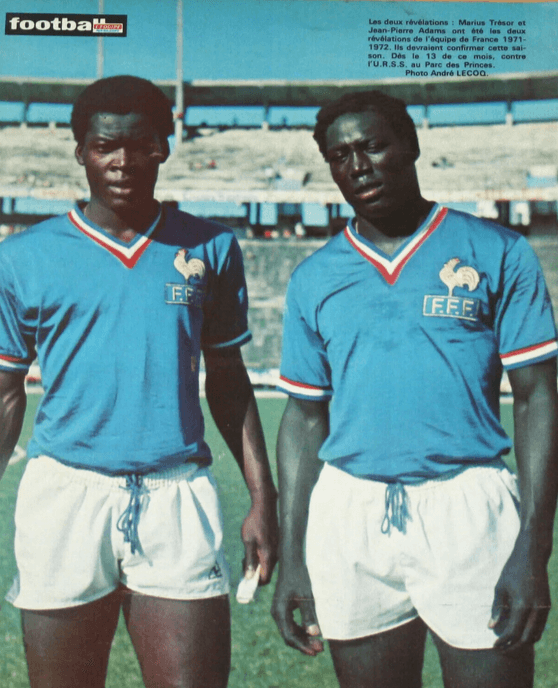
Marius Trésor and Jean-Pierre Adams with the France national team in 1972.
He was captain 23 times and shared a team with the famous Magic Square with Alain Giresse, Jean Tigana, Michel Platini and Luis Fernandez. Great players who had the honour to wear the shirts of the France national team.
The legacy of Marius Trésor
Marius Trésor stood out not only for his performance on the pitch, but also for his influence off it. In 1972, he was named French Player of the Year by France Football while playing for AC Ajaccio, an exceptional recognition for a defender. In 2004, Pelé included him in his renowned FIFA 100 list, and in 2022, So Foot magazine ranked him 13th among the top 1000 players in the history of the French championship.
Indeed, he will be remembered as one of the greatest defenders in world football, and his influence lives on in later generations of French footballers, his style of play and ability to organise the defence were groundbreaking for their time, and his legacy has endured as one of the great icons of French football.
After his retirement, he continued to be involved in football, working as a coach and working with his former club, Girondins de Bordeaux, where he is considered a legend. That is why we ask ourselves a question that is so necessary in today's football with regard to players who are legends even if they have not won countless titles: How do you measure success in football?
 Retrofootball
Retrofootball  Belgium
Belgium  France
France  Germany
Germany  Italy
Italy  Portugal
Portugal  Spain
Spain  Switzerland
Switzerland  United Kingdom
United Kingdom  other countries
other countries  Retrorugby
Retrorugby 
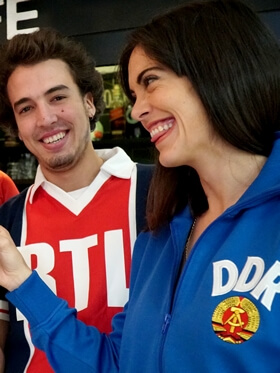
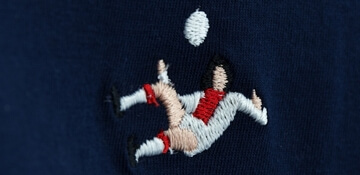
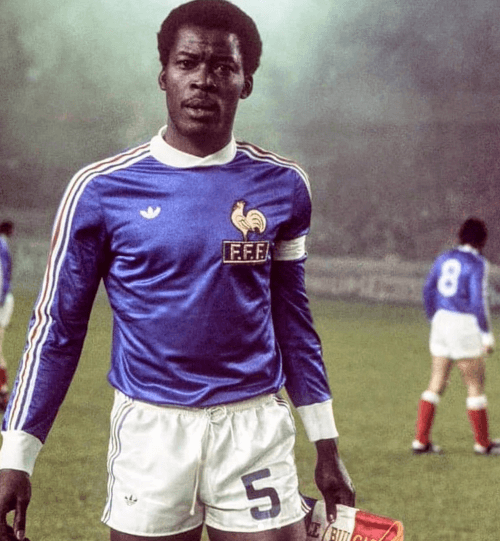
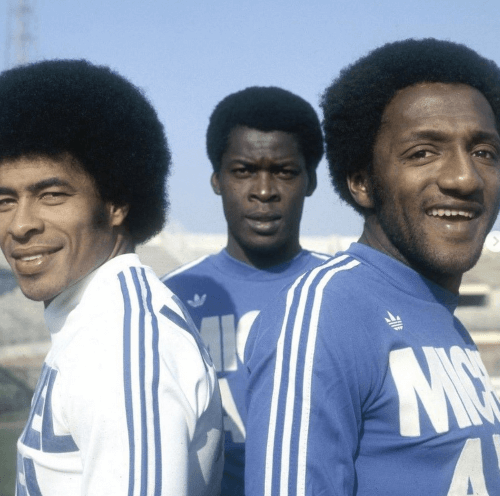




Post Comments